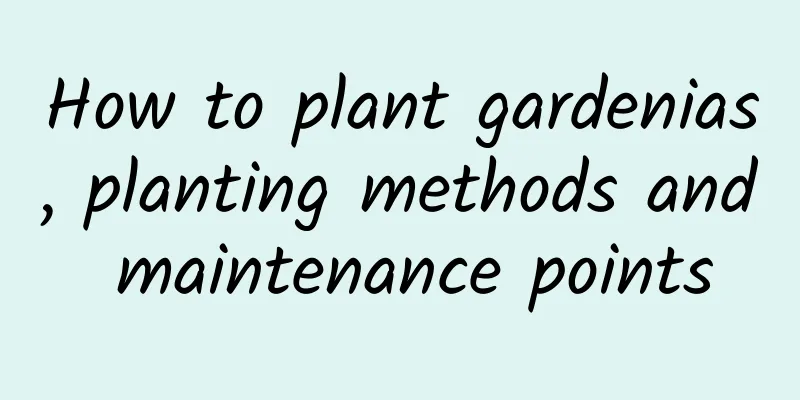When is the best time to plant Chinese cabbage?

|
Chinese cabbage is a very common vegetable . It is rich in vitamins and minerals and has a good health-care effect on human health. Many rural families grow it. So when is the best time to plant Chinese cabbage? Let’s take a look below. 1. When is the best time to plant Chinese cabbage? Chinese cabbage is native to China and is a vegetable that has relatively low temperature requirements. In northern regions, spring and autumn are generally more suitable for planting. In spring, sowing can be carried out from mid-to-late March to early May. At this time, the temperature rises and is generally suitable for dryland planting. In autumn, sowing can be carried out from mid-September to early October, and the harvest period is around November. 2. Key points for cultivation and management of Chinese cabbage 1. Suitable environment Green vegetables require suitable environmental conditions to grow, mainly including temperature, humidity and light. Generally speaking, the suitable temperature range for the growth of green vegetables is 10-25℃, the relative humidity is 60-70%, and the light intensity should not be too strong to avoid burning the leaves. 2. Variety selection Different varieties of green vegetables can be selected according to different climatic conditions and market demands. Common varieties of green vegetables include cabbage-type greens, Chinese cabbage-type greens, etc. Cabbage-type greens have a crispy texture and are rich in nutrients, making them suitable for cold dishes or stir-frying; cabbage-type greens are heat-resistant, drought-resistant, and storable, making them suitable for summer cultivation. 3. Seedling cultivation techniques Raising seedlings of green vegetables is a very important part of the cultivation process. During the seedling stage, seed treatment and soil disinfection are required. Seed processing mainly includes steps such as selecting good varieties, soaking seeds and germinating them, so as to improve the germination rate and uniformity of seeds. Soil disinfection can be done by using high temperature disinfection or chemical disinfection to kill pathogens and insect eggs in the soil. 4. Planting method When the vegetable seedlings grow to a certain size, they need to be transplanted. The row spacing, plant spacing and depth should be reasonably controlled during planting. The row spacing is generally controlled between 20-30 cm, the plant spacing is 15-25 cm, and the depth of soil should cover the roots of the seedlings. 5. Water and fertilizer management Green vegetables need sufficient water and nutrients to grow. When it comes to watering, the soil should be kept moist so that the vegetables can absorb moisture. When applying fertilizer, you should choose appropriate fertilizers according to the growth stage of the vegetables and the soil fertility, such as organic fertilizers , chemical fertilizers, etc. At the same time, foliar spraying can also be carried out to supplement nutrients. 6. Pest and disease control It is inevitable that green vegetables will encounter problems with diseases and pests during their growth. Common vegetable pests and diseases include aphids, cabbage worms, anthracnose, etc. For these diseases and pests, a combination of prevention and treatment should be adopted. On the one hand, the resistance of green vegetables can be enhanced through reasonable cultivation and management measures; on the other hand, chemical agents can be used for prevention and control. 7. Harvesting and storage Harvesting and storage of green vegetables are also important links in the management process. Generally speaking, green vegetables should be harvested in time during their growth period to avoid them becoming old or rotting. The best time to harvest is in the morning or evening to avoid the impact of high temperatures on the vegetables. When storing, the vegetables can be placed in a cool and ventilated place, or refrigeration can be used to extend the shelf life of the vegetables. That’s it |
<<: How to make the leaves of green radish turn green
Recommend
How to save seeds of Impatiens
How to get Impatiens seeds Impatiens, also known ...
How to grow Gloxinia flowers
Farming methods temperature The growth temperatur...
Why are the leaves of jasmine potted plants not shiny? (How to grow them to bloom more and have shiny green leaves)
1. Soil alkalinization causes the leaves to be du...
How to raise a bear paw
How to grow bear's paw: soil The potting soil...
How to breed Thor
1. Maintenance methods 1. Temperature: Thor likes...
Can rice washing water be used to water June Snow? The correct way to water rice washing water
Watering June Snow with Rice Washing Water Rice w...
How much water should be put in hydroponic hyacinth
1. How much water should be added 1. Before rooti...
Precautions for cultivating golden thread lotus
1. Soil selection Golden thread vine grows best i...
Cultivation methods and precautions of red back laurel
Cultivation method of red back laurel temperature...
Home breeding and precautions of the planet (dou)
Planet's Family Farming Method The soil of th...
How to prune jasmine into a tree shape
1. Topping and pinching If you want to prune it i...
How to prune fuchsia
When to prune fuchsia When pruning fuchsia, it is...
The value of the white tree
Better medicinal value Treating rheumatism The ta...
When is the best time to water the peace tree? When is the best time to water it?
Peace tree watering time The peace lily grows rel...
When is the best time to sow violets?
Suitable time for sowing violets Violets belong t...









